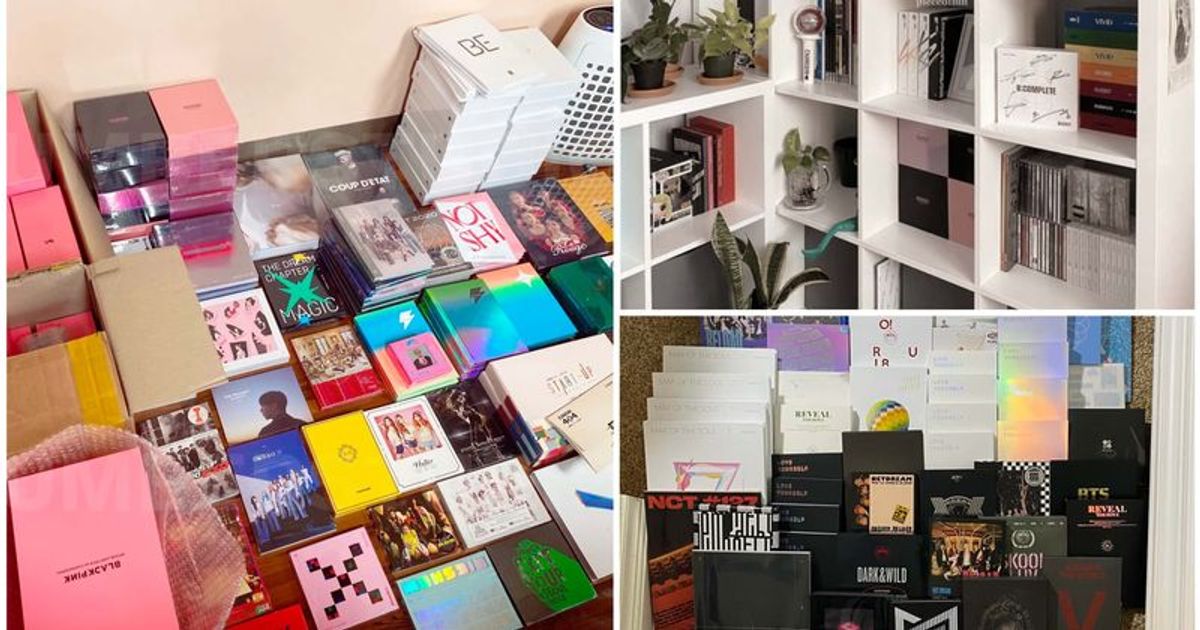Are physical K-pop albums over? Labels make efforts to reduce environmental pollution

K-pop albums always sell like hot candies and it is the K-pop industry that is becoming a toxic chain of producing environmentally hazardous products. From producing items that fans would buy to listen to songs from their favorite artists to a hoarder's collectible, the identity of K-pop albums has drastically changed over the years. With the addition of photo cards that force fans to buy more to get more, the toxic cycle of purchasing K-pop albums is great for companies in order for them to make money but very bad for the environment.
Over the last year, HYBE, one of the biggest K-pop labels, alone sold out 57 million albums in 2021. The sheer number of albums sold from one K-pop company added to the number of companies that exist in K-pop yields an alarming result in album sales. The reason behind this increase in sales of K-pop albums is linked to the 'photo card' collection syndrome that is viral amongst fans who go to various lengths to purchase albums to have an elaborate display of photo cards. According to Korea Customs Service, music exports in 2021 amounted to $220.836,000, up 1.6 times from $136,21,000 in 2020.
READ MORE
‘Earth Day’ protest begins at HYBE as 57 million physical K-pop albums sold in 2021
Blackpink made UN Sustainable Development Goals advocates after BTS was set to address UN
Manifesto Day 1 Weverse Ver, now sold out! 🙈
— hybeshop (@hybeshop) July 7, 2022
What a way to introduce an era of digital albums for HYBE. It's affordable, environment-friendly, cheaper to ship, and even the photocards are worth it! ❤️
I hope stick to just this instead of proceeding with their n/ft plans. pic.twitter.com/gDd8azcgMV
Physical K-pop albums to come to an end in the near future
It seems like K-pop agencies are on their way to eliminating the idea of physical albums in order to prevent K-pop fans from mass buying albums and causing grave trouble to the environment. Although increased album sales actually yield a huge profit to labels, the fact that they are not used for their original value aka listening to music, the albums are thrown away as garbage which is causing a huge crisis to the environment. Not only in South Korea but international K-pop fans buy and discard albums with the sole purpose of collecting photo cards.
Now after environmentalist fans took various efforts to direct labels' attention toward this mass waste production, the agencies themselves are pledging to make new attempts and eliminate or remove physical albums from K-pop. Many agencies have reported of planning the release of fully digitized albums or producing albums using eco-friendly materials. Starting with J-Hope's solo debut album 'Jack In The Box', HYBE is starting their first 'CD-free' album which only consists of a QR card, a card holder, and a photo card, all the things that fans actually buy albums for.
#SF9 is helping to reduce environmental pollution by releasing an eco friendly album with 80% of the entire print made of paper certified by the FSC, biodegradable soybean oil ink, and water-based coating. @SF9officialhttps://t.co/AZZrAbp7Mj pic.twitter.com/xOe9fLNoY8
— ƒαrαн🌴 (@twinkyxstar) July 3, 2022
Other measures taken by labels to help save the environment
In a similar fashion, groups like Victon, Weeekly, AB6IX have also released albums excluding CDs and photobooks to help conserve the environment, taking one step at a time. FNC Entertainment, the label that manages the boy group SF9 also reported they have used eco-friendly materials in their upcoming album that can be decomposed naturally after disposal.
Moreover, YG Entertainment produced the boy group Winner Mino's solo album, 'To Infinity' with a low-carbon paper made from low-chlorine bleached pulp, and water-based coating that was certified by the Forestry Management Association (ESC) in their efforts to help curb environmental pollution.










